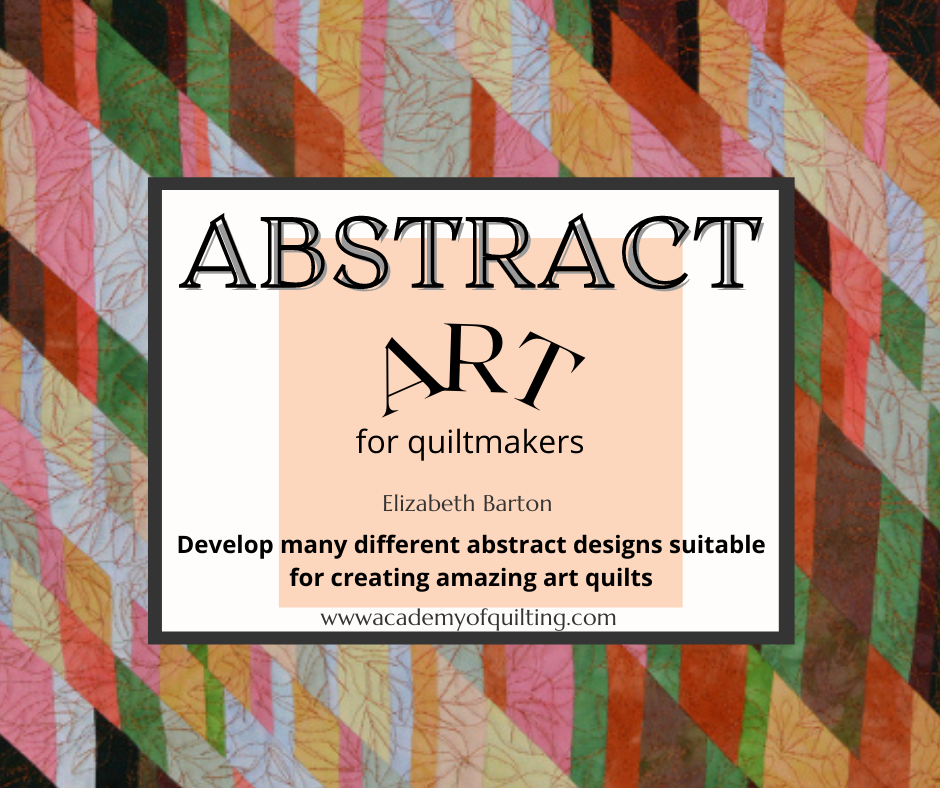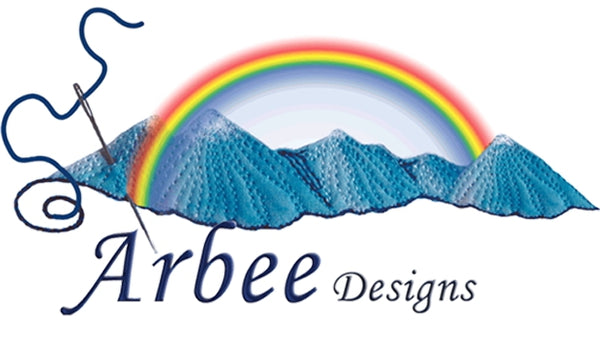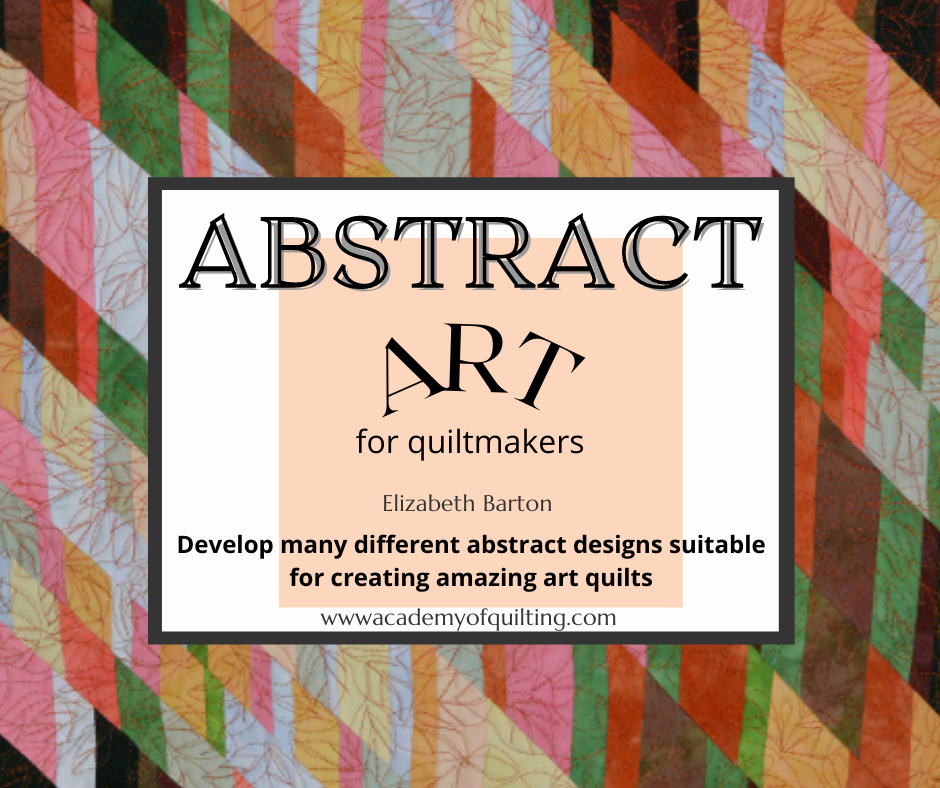
- Description
- Requirements
Highlight: There are so many wonderful abstract paintings that inspire you to design. Elizabeth has taken many of them, analyzed just how they were created, and shows you with multiple exercises how to design your own. You will end up with enough designs for a whole year of quiltmaking!
"My five year old could have painted that!!" NO way!!! Abstract art is rich, complex and fascinating. Especially the female abstract arts who have only recently been "discovered" and honored by the art world at large.
But how and where to begin designing an abstract work?
A close study of many of the paintings yields many many ways to design. And they're beautiful too. and fresh!!! you haven't seen them in every other quilt magazine!!!
And since Elizabeth shows you how to design well from the outset, you don't have lots of wasted fabric, or frustrating moments when making a quilt that just doesn't seem to work.
Based on a sound knowledge of what makes a good design, and a great color scheme, your new work will be exciting and rewarding from the start.
A lasting work of art is both beautiful AND intriguing....abstraction is the way to go!!!
All levels are welcome - designs can be simple or complex - though some sewing experience will be very helpful.
Note: Once purchased, you can access the class data any time, 24 hours a day and you get immediate access. (if you don't have an account we suggest you sign up for one prior to purchase)
Time Duration applies only to teacher access for your question and answer duration.
Outline
Lesson One:
- Introduction & Definitions
- Divisions of Abstract Art
- Abstract art, a brief history
- The innovators and what comes next
- Parallels between painting and quilts
- Is abstract art merely pattern making?
- Interpretations. Does meaning matter?
- Exercise 1: Research
- Exercise 2: Your Quilts
- Exercise 3: More Research
- Exercise 4: Discover
Lesson Two:
- The early abstractionists
- Design Exercise 1: Fracture
- Design Exercise 2: Curves
- Design Exercise 3: Three values
- Exercise 4: Next step: evaluation
- Exercise 5: Construction (optional)
- Exercise 6: Exercises with another artist
- Exercise 7: Research Good Art
Lesson Three:
- Geometric Abstraction
- The Design Techniques
- Exercises 1-3: Geometric steps
- Exercise 4: Your Own geometric steps
- Exercise 5: The Next Step: Value Studies
- Exercise 6: Researching Good Art
Lesson Four:
- Other techniques used in abstraction
- Exercise 1: Colour and a single shape
- Exercise 2: Color copying
- Exercise 3: Tissue paper and color
- Exercise 4: Search
- Exercise 5: Exploding objects!
- Color choices
- Exercise 6: Your Own Colorwheel
Lesson Five:
- Putting it all together
- Exercise 1: Sorting Designs
- What are the key things to look for in critiquing one’s designs?
- Critique Groups
- What is the art about?
- Originality
- Tension/Energy/Variety/Contrast
- The “rules” of composition
- Exercise 2: Your own critique checklist
- Exercise 3: Make the decision!
- Exercise 4: Moods
- Exercise 5: Color Inspiration Folder
- Exercise 6: Color Samples
- Making a sample or study piece
Supplies Required for Workshop
Designing Abstract Art
Access to the internet.
Inspiration/ Composition/design
Pictures, photos, sketches are all inspiration for design.
Make a notebook of any interesting pictures or ideas you come across – start collecting! These can be abstract paintings, designs on floors or walls or t shirts, ideas in advertisements, photographs of strange objects in the tool shed – anything!
Plain paper (white) for sketches and notes. (at least 50 pages).
Sheet of ordinary brown wrapping paper.
Sheet of black construction paper.
Colored papers (from glossy magazine images) – torn out pages are fine!
Tracing paper.
White chalk pencil: General’s charcoal (white) is available in most art stores.
Ruler, pen, pencil. Pencil sharpener.
Exacto knife.
Glue (any kind, school glue, glue stick, tape etc).
A light grey, a medium or dark grey and a black felt tip pen for value studies. (if you cannot get grey then look for light brown, medium brown, and dark brown).
Camera (cell phone is fine).
Fabric
Your usual fabric collection.
Batting and backing fabric.
Construction tools
Rotary cutter, board, rotary ruler guides, spare blade – or scissors.
Marking pencil (White Charcoal is good, most art supply stores carry it) (or silver) for marking fabric for cutting.
Usual sewing supplies: thread, needles, pins, scissors.
Optional: Freezer paper (only if you prefer to make templates).
Optional: fusing stuff – if you are a fuser!
Sewing machine in good working order.

